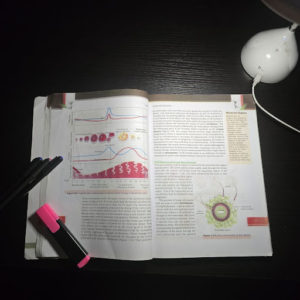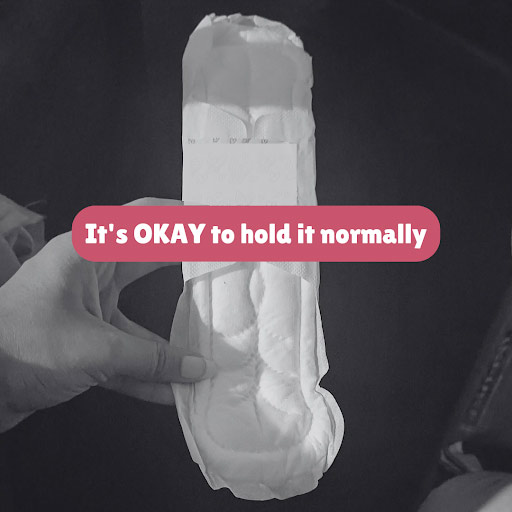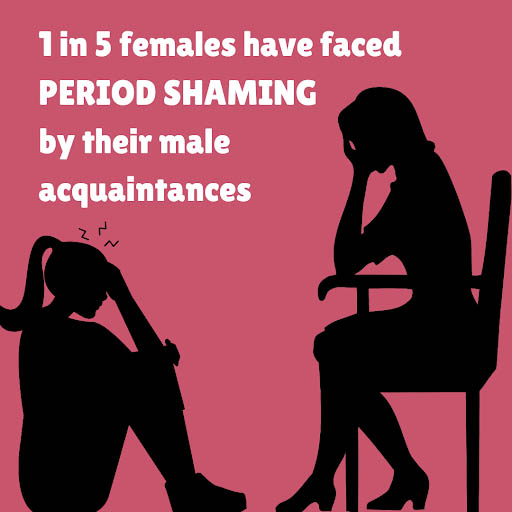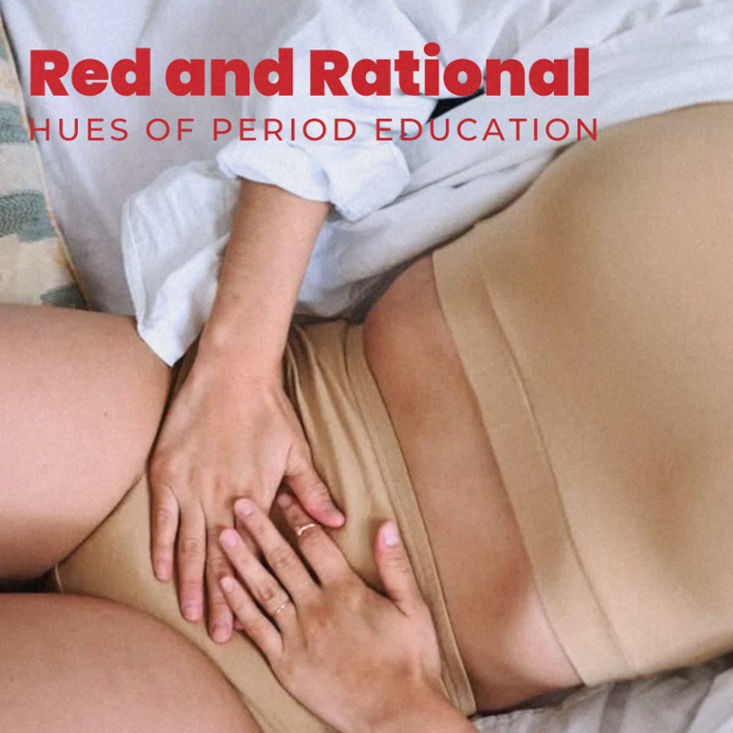CATEGORIES
#Breaking Stereotypes #She Speaks #Women EmpowermentOverview:
- The anatomy of women and men differ. These differences must be respected.
- Period shaming is a ludicrous and regressive practice.
- Educational settings should be informative, and unprejudiced for students of all genders.
- Knowing basic menstruation facts is important in all types of relationships.
Transforming Curricula
I was in a conventional convent school where the quality of education was considerably high. Yet, I can recall how parochial teachers taught the chapter on menstruation, but with a vague approach. Students avoided raising inquiries or even trying to grasp the idea of menstruation. Boys’ inquisitiveness was matched by the discomfort with which girls grinned among themselves.
I was curious as to why, but knew the answer, which is still rooted deep in our obstinate societies. Unfortunately, the regressive reality of period shaming is not unique to India, but to numerous countries around the world. This includes the developed countries as well. That makes me question the generations of persistent practices. Society has passed down practices to paint the complexities of women’s health in an unjustly deplorable light.

Not Ashamed, but Proud
Women are humans, of course, but we frequently forget to recognize this basic fact. It is natural and expected for them to have biological distinctions. Women amass the ferocious fortitude to produce a life—something absolutely elegant and courageous. But, when it comes to recognizing, accepting, and respecting those differences, both women and men tend to be ignorant.
The anatomy of men and women differs. It’s imperative to recognize the elegance of the intricacy with which a woman is built. However, this is often unjustly taken for complexities they should be embarrassed of. A woman should be proud that she holds the loveliest ability to reproduce. Menstruation, menstrual health and related disorders, period education, and period poverty are all integral topics. These must be included and taught well in academic curricula to foster healthy mindsets. Learning must be in prejudice-free, inclusive, and informational settings to ensure all genders understand that periods are not shameful. More, and proud male gynecologists, or inclusive spaces with confident women on periods. These scenarios, if not for misleading patriarchal beliefs, should have been the norm.

Moralizing at the Roots
When I say ‘roots’, I am referring to specific primary bases from which beliefs and behaviors start getting instilled. The roots include your parents, the people in your house, your school environment, your teachers’ mindsets, and their approach. When these individuals and institutions practice regressive belief, it’s evident to catch on to them, be it girls or boys. A girl goes through very crude practices throughout her first and subsequent periods. ‘Don’t go to temples’, ‘Don’t touch men’, ‘Don’t tell your guy friends’, etc, are stigmas we have to break.

The Need for Discussions
I recently got off my PCOD meds after three years of mental and physical anguish. I recall both my male and female friends being intrigued about the disorder. Even though we had all read about it in the suppressed corners of our textbooks, they remained ignorant. My male pals had no idea how long regular periods last, what menstruation is for, or how it works. Despite having read an entire chapter on reproductive health and menstrual phases in biology textbooks, they didn’t know the basics.
People should know the basics. Fathers should ask their daughters about their menstrual well-being. Mothers should facilitate discussions about menstruation and menstrual health. Parents should explain to their sons that women have this biological difference because of their ability to reproduce. It isn’t something shameful, but rather brave and beautiful. Teachers should do sessions about the differences in anatomy of men and women. They should discuss periods, period poverty, menstrual disorders like PCOD, PCOS, and endometriosis, which are common in females. These topics and related facts must be discussed in front of all the students to maintain transparency.
Chronic Ignorance
Knowing fundamental menstrual facts, as well as respecting bodily autonomy and biological variances, may appear to be trivial matters. However, when viewed from a vital standpoint, ignoring these ‘small’ facts about menstruation is a cause of household disturbances. Not only that but domestic violence, gender inequity, and violence against women too.
When society portrays menstruation as shameful, it portrays women as weak and devalues them, which is completely ludicrous. These generational habits also lead women to assume that they are weak and incapable of working outside. They fear to exercise their right of standing respectfully in male-dominated environments. I’m glad these stigmas are being dissolved at a good speed; stereotypes are being shattered, but it can be better.

Be a Man
Men should know about menstruation and the physical and mental symptoms that come with it. Such as mood swings, sensitive breasts, weakness, dehydration, and so on. When you educate your sons these truths, you help them comprehend, be considerate, and respectful of women. Respect is essential for society to see women as equals and humans.
Women will not be forced to leave their occupations after pregnancy. Period breaks will be a valid thing. And society will also expect a man to take pregnancy leave to assist their wives. Rapes, domestic violence, and gender inequality will reduce down. We will no longer consider periods as shameful and understand and approach the subject of menstruation rightly. Awareness of menstruation will also benefit women’s reproductive and sexual health. Men will maintain good hygiene and be mindful of a woman’s sexual preferences, reproductive health, and needs. Concerns such as urinary tract infections, atypical bleeding, painful sex, and the effects of menstrual disorders, will be understood.
Sensitivity and Direction
All of the improvements that we seek to begin or witness are only feasible with leadership and understanding. The transformation begins with us. Let’s start being considerate and sensible about sensitive issues. Every small effort we take to be empathic and considerate of our fellow beings results in a shift.

Integral Leadership
I see numerous young activists, women leaders, and change-makers from all walks of life, including indigenous and economically disadvantaged groups. They are conducting innumerable awareness workshops, informational sessions, innovating for change to battle the stern stereotypes and issues. They are providing directions to the coming generations who shall lead the movements.
It gives me hope and encourages many of us to instill the principles of kindness and inclusivity in others. But it should not be solely their efforts. It should be a collective effort by humans to nurture healthier mindsets in future generations.
The next generation of women must not bear the generational trauma and burden of baseless practices. Males in the coming generations must understand what periods are and how menstruation occurs. Gen Z must prioritize gender justice and true mutual respect, taking forward and advocating for the change.
Conclusion:
Period education is vital and coherent. It is integral for us to provide the budding minds with an open, inclusive, and considerate outlook. The world needs kindness to battle any humanitarian crisis. These little efforts to solve the rooted atrocities are the initial steps to peace.
So I say, the hues of period education are red and rational!
FAQs:
Are menstrual disorders curable?
Yes, they are mostly curable. Some can be cured by following a healthy diet. Some can be controlled by hormones. Some can be treated through surgeries.
Are menstrual disorders common?
Yes, menstrual disorders are very common. Women are prone to infections of the vagina.
Is menstrual education not a part of the educational curriculum already?
Yes it is, but there are more integral menstruation related things that need to be included. Teaching correctly, while maintaining transparency is crucial.
As a school student, how do I make sure my teacher teaches the chapter with Menstruation in it?
You can ask doubts, and tell teachers to teach it again. Spread awareness regarding period education amongst your friends.


